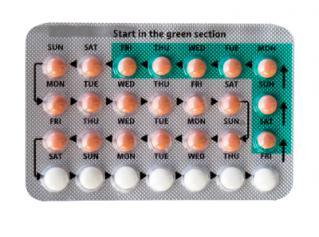The place to find all of the legal abortion clinics in the United Kingdom
Contraceptives for women
You will find all the information that you need to know about contraceptives for women here. You can find out about the types of contraceptives for women. Which ones are which and how contraceptives for women work.
Written by www.abortionclinicsinuk.co.uk in Contraceptives on the 02/10/2015
 The Pill: More than just a contraceptive.
The Pill: More than just a contraceptive.
Did you know that the pill can help with treating acne, help with PMS and with endometriosis?
Well, it can. We kind of take the pill for granted now, but it hasn't always been legal in the Republic. It has so many other medical uses, including treating heavy periods. One of the main ways that women in the 70's asked for the prescription, and it just happened to prevent pregnancy too.
The most common version of the contraceptive pill contains oestrogen and progesterone and prevents ovulation. By the ovaries not releasing an egg, there is nothing for the sperm to fertilize. Its constant cyclical dosage of hormone also helps to regulate periods, and makes them lighter. Thanks to this the pill can therefore help premenopausal women with heavy bleeding and hence anaemia. Likewise with women who experience sever Premenstrual syndrome with discomfort and anxiety not disimilar to a brief spout of clinical depression and can be disabling. Bloating, fatigue, breast tenderness and irritability can all be helped with the pill by controlling hormone levels.
Something less commonly known is that is is widely used for the treatment of acne in women. One formulation is well known for reducing oily skin and has anti-androgen properties making it a good acne treatment. Some research also suggests that the combined pill is as effective as antibiotics in treating the skin condition, especially with not wanting to overprescribe antibiotics.
It can also help with endometriosis, a condition when tissue lining implants itself outside the uterus. It can be unpleasant and painful and can even cause fertility problems. The pill can't cure the women that suffer from this but by making their periods shorter and lighter can ease their suffering.
There are also rumours about its role in the prevention of endometrial cancer. A study from Oxford University analysing 36 studies of 140 thousand women from all over the world found that it appeared that there was a 24% reduction in the risk of this cancer for every 5 years that a woman took the contraceptive pill. Its preventative effects also continued apparently for up to 30 years after the woman stops using the contraceptive.
Source: www.abortionclinicsinuk.co.uk
- Normas de participación
- > Esta es la opinión de los internautas no de Clinicasabortos.mx
- > No se admiten insultos ni faltas de respeto
- > No esta permitido hacer comentarios contrarios a las leyes Mexicanas o injuriables
- > Clinicasabortos.mx se reserva el derecho a eliminar los comentarios que considere ofensivos o fuera de tema
Most popular FAQs
Questions by recent users
- Please can you contact me to discuss adding our services to your site - see www.nupas.co.uk. We are contracted by 60 CCGs to provide TOPs across the UK, Many thanks
- Hi I got all the symptoms for pregnancy but the pregnancy test shows negatives
- hello, am not sure but I think I might be pregnant as i had unprotected sex during my fertile days the test says negative but my tummy hasn't stopped hurting
- Is there anyway I can find out about a previous abortion I have had?
- The fourth time in about 6 months that i'll be using the after morning pill... is it safe?






